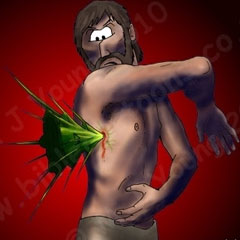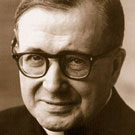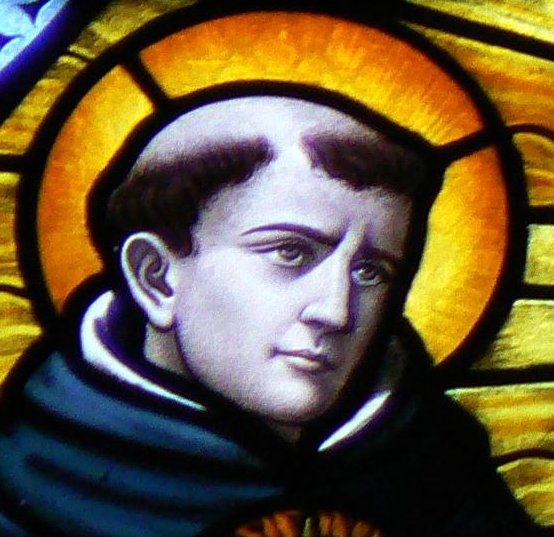What was that thorn in St Paul’s flesh which we heard about at Mass yesterday?
Just to jog your memory:
I was given a thorn in the flesh, an angel of Satan to beat me and stop me from getting too proud! About this thing, I have pleaded with the Lord three times for it to leave me.
(2 Cor 12:7-8)
St Augustine suggests Paul was referring to a physical affliction — perhaps the same “bodily ailment” which Paul mentions in his Letter to the Galatians. (Gal 4:13) St John Chrysostom argues that Paul was referring to the religious persecutions he endured. St Gregory the Great speculates that the thorn may be a temptation which Paul struggled with — anything from lust to greed to an addiction. Or maybe St Paul was reflecting on his fiery temperament, which I’ve blogged about before.
No speculation on the thorn in Paul’s flesh is complete without mention of cartoonist Tim Davis’ theory. Its implausibility in no way diminishes it hilarity:
St Paul’s terms are general and ambiguous, but there are a few things we can ascertain about this thorn. Firstly, it’s not only painful to him, but humiliating. Secondly, it’s not from God. We could go as far as to say it’s evil — Paul attributes his thorn to Satan. Thirdly, and most importantly, this unwanted and humiliating evil becomes a conduit of God’s grace.
We have thorns of our own — weaknesses, vices, addictions — which we can beg God to take away. And the good Lord probably says to us what he said to Paul. “My grace is enough for you.”
But can we respond as Paul responds? “I am quite content with my weaknesses . . . For it is when I am weak that I am strong.”
 Sacramental confession helps. How often shame and embarassment discourage us from confessing our sins. But it is precisely through confession that the Lord heals us of that shame and embarrassment.
Sacramental confession helps. How often shame and embarassment discourage us from confessing our sins. But it is precisely through confession that the Lord heals us of that shame and embarrassment.
When such thorns are hidden, they possess us and deprive us of peace. But when they are named, they lose their power and the Lord’s healing work flourishes.
It’s a very humble soul who can write “I shall be very happy to make my weaknesses my special boast, so that the power of Christ may stay over me.” This is the stuff of saints! The stuff of spiritual childhood! (Same thing.)
St Paul, pray for us!







I wonder if Paul’s thorn was something like epilepsy, which would have posed a big challenge for the Jews … but would have shown Christ’s favour and power working through Paul in spite of an affliction which was generally regarded as demon possession? Paul says his condition would normally elicit scorn and contempt, but in fact it has not because of the power of the Holy Spirit working through him.
MuMu I have petit mal epilepsy (managed) and hope it wasnt that, that emabarrassed Paul because I am not ashamed of mine. I actually think that my guardian angel worked very hard for me, driving when I spaced out, cooking when I spaced out etc etc etc. until it was corrected.
My thinking of St Paul’s “thorn” has always been that it was probably sexual urges and continence. But that’s my theory.
Hi Anne,
I used to suffer from petit mal seizures as a child.
During my primary school years they were very much the elephant in the room and I had a hard time making friends. A pretty big thorn I would say. Fortunately I was graced with plenty of brothers and sisters to rush my defense .
I’m no theologian John but I think in his Letter to the Galatians Paul was referring to his blindness after the road to Damascus
Michaela unfortunately my petit mals still are with me.(I am sooooooo old) am on medication. the only way we can test is if I go off medication and dont drive for 6-12 months so for now I cant do that. When I finish work then I can.
Very interesting post. Thank you. I also love the cartoon with spongebob squarepants. haha.
Dear Fr. J,
Thankyou for this post, it outlines the merits of suffering and the importance of the Sacrament of Confession. An interesting fact that may intrigue you and your readers is a study that was done way back regarding the numbers of suicide amoung Protestants being much higher than Catholic congregations. And the study concluded that this is primarily because the Sacrament of confession is non existent within Protestant congregations. You see it is human nature to offload and talk about our inner struggles and find forgiveness, but the Sacrament of Confession completes this spiritually. Priests who have the courage to wear their collar or habit are clearly identifiable amoung a crowd to a person who needs help, this may be the very thing that may save a soul for Christ. With all the personal struggles St. Paul reveals to us, it is refreshing insight into his human struggles that he mastered with Christs help and became a Saint.
God Bless you Fr. J